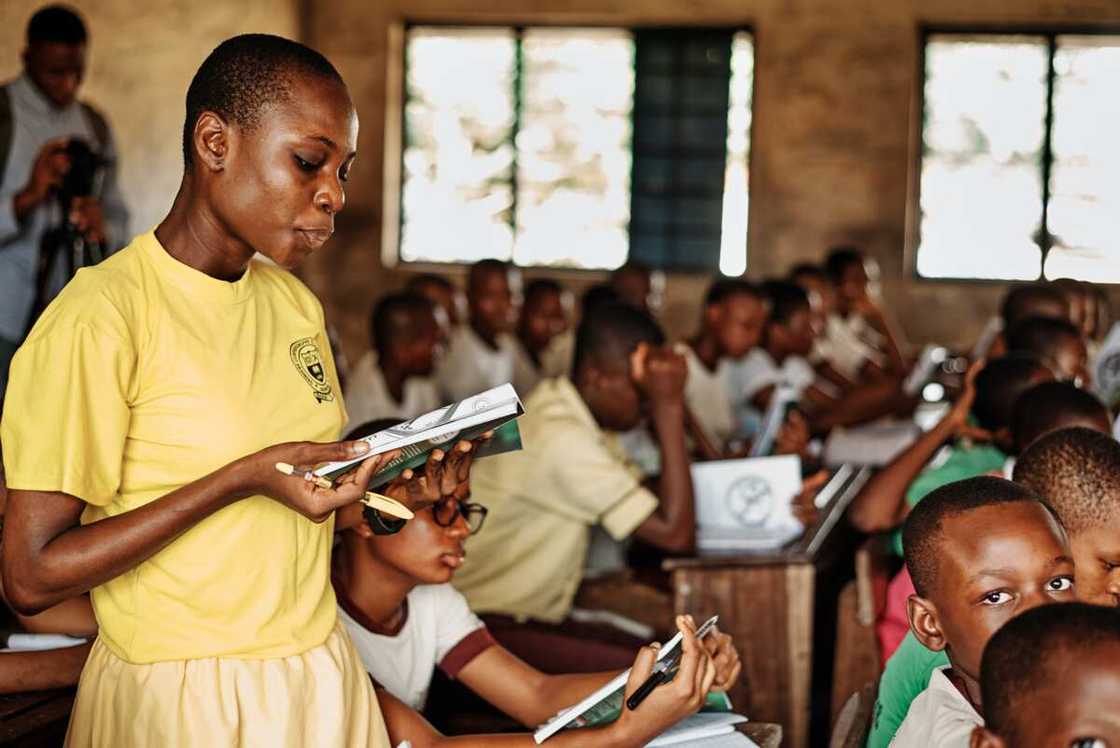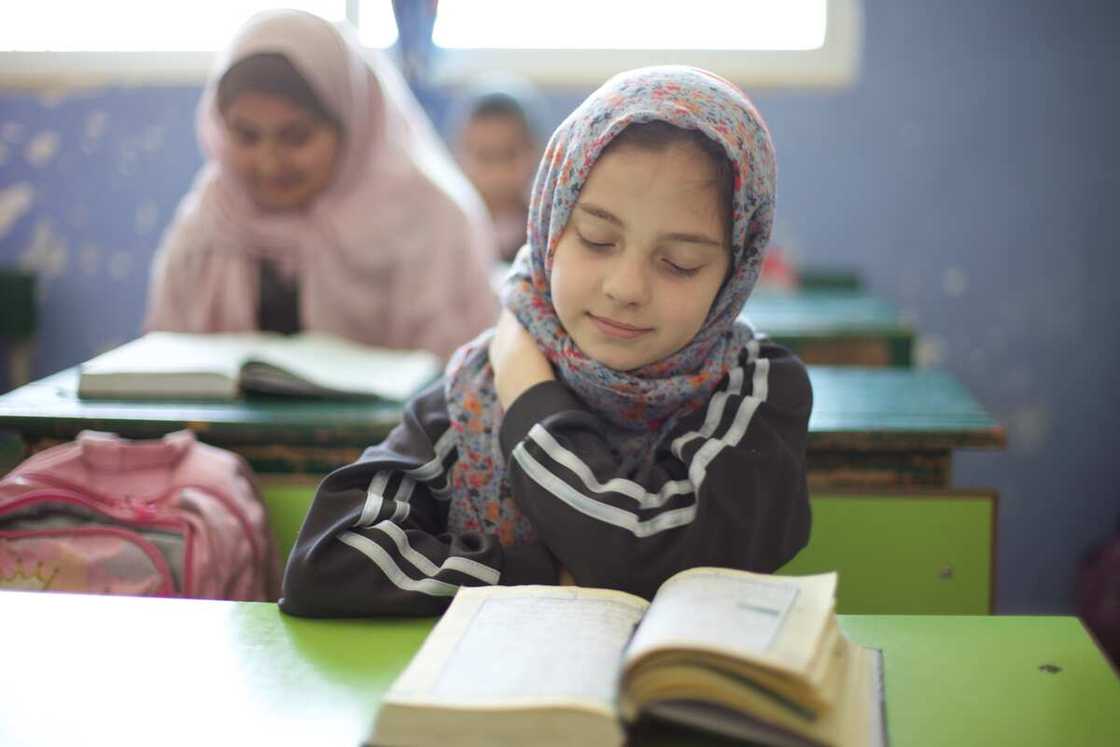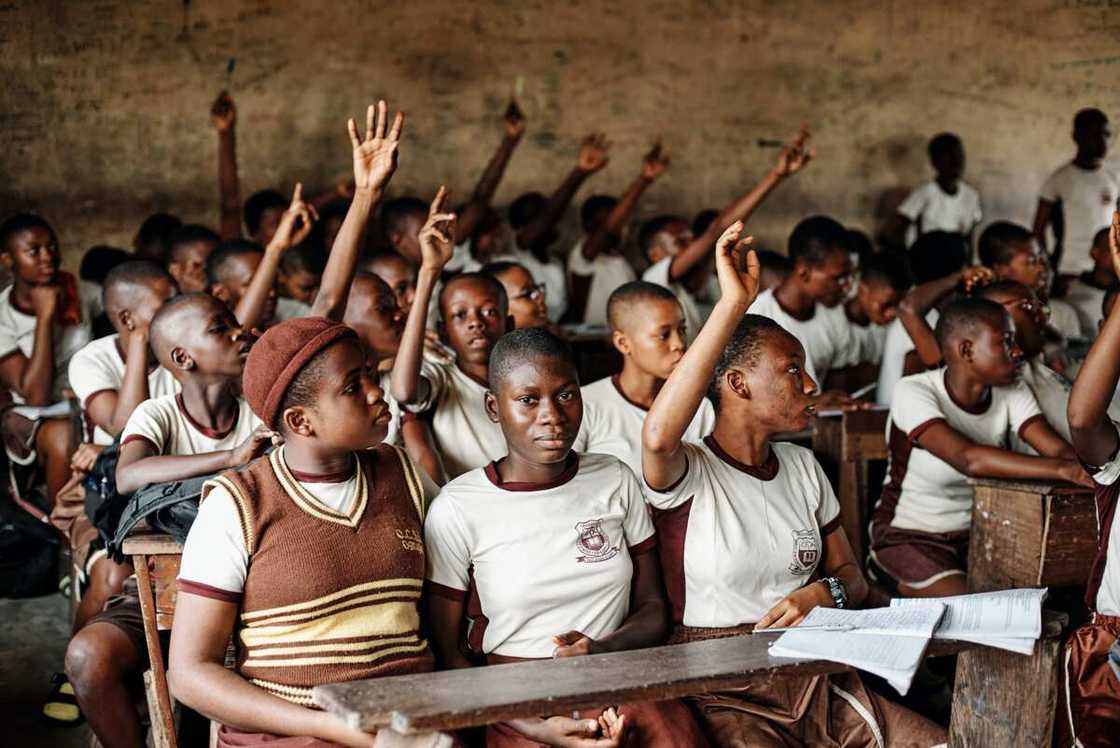Problems of education in Nigeria in 2024 and potential solutions
The quality of education in any country is one of the major keys to national development. The decline in the quality and standard of education in Nigeria is alarming. Below are the pressing problems of education in Nigeria and solutions towards a brighter educational future for the nation.

Source: UGC
Nigeria's education system continues to face several issues, each of which poses a substantial difficulty to the country's progress and development. The government can improve the country's education quality by implementing new reforms and doing more to the education sector.
Problems of education in Nigeria and potential solutions
A good education opens many opportunities, from better employment prospects to developing a country. Nigeria has the potential to not only enhance the quality of education but also empower its citizens to contribute meaningfully to the nation's progress.
Factors affecting the educational system in Nigeria
Here are some of the significant issues confronting the education industry and the key criteria that should be considered to create an effective education system in Nigeria.
Poor governance and management
One thing that has crippled most sectors in Nigeria today is poor governance. The educational sector is not an exception. The government's attitude towards crucial problems of education, especially its quality, is lackadaisical.
Basic universal education suffers the most because primary education is neither fully controlled by the federal nor state or local governments.
Poor funding and neglect of the education sector
Education in Nigeria is poorly funded. It is not always given the priority it deserves in allocating government resources. Many schools in Nigeria suffer from dilapidated infrastructure, lack of proper sanitation facilities, and inadequate classrooms. This negatively impacts the learning environment and student outcomes.
Corruption

Source: UGC
Corruption has led to the misallocation of funds that are meant for education. Money intended to build and maintain schools, provide learning materials, and enhance educational quality can be diverted to personal pockets or other sectors. As a result, schools suffer from inadequate infrastructure, lack of supplies, and reduced access to quality education.
Poor infrastructure and training facilities
Poor infrastructure and training facilities profoundly impact education in Nigeria, affecting both the quality of learning and the overall educational experience for students and educators.
This has resulted in a lack of schools in certain areas, especially rural and remote regions. This limits students' access to education and forces them to travel long distances, often discouraging attendance.
Also, overcrowded classrooms make it difficult for teachers to provide personalized attention to each student. This hampers effective teaching and learning.
Low teacher quality
The quality of teachers varies widely, with issues such as unqualified or underqualified teachers, inadequate teacher training, and lack of professional development opportunities. This leads to subpar instruction and learning outcomes.
High level of exam malpractice
There is an alarming rate of exam malpractice in Nigeria. They are practised both by students and teachers. The inability of the government to curb this has caused a serious decline in the quality of the Nigerian education system products (level of knowledge).
Insufficient technical and vocational education
There is a lack of emphasis on technical and vocational education, which can equip students with practical skills for various trades and industries. This contributes to a shortage of skilled labour.
Poor parenting and guidance
Numerous parents fall short of displaying adequate concern or assistance. Their primary focus is ensuring their children succeed, regardless of the methods employed. This absence of adequate guidance for their children results in them endorsing involvement in examination misconduct.
Solutions to educational problems in Nigeria

Source: UGC
Here are several measures that can be taken to handle the obstacles confronting the education sector in Nigeria.
- Allocate a larger portion of the national budget to education to address resource shortages.
- Implement stricter measures to prevent corruption and ensure funds are used for their intended purpose.
- Improve teacher quality through better training, certification, and ongoing professional development.
- Update the curriculum to align with current societal needs and job market demands.
- Invest in building and renovating schools to provide conducive learning environments.
- Incorporate technology into education to enhance learning experiences and provide students with digital literacy skills.
- Collaborate with private organizations and NGOs to support education initiatives, provide resources, and improve the quality of education delivery.
- Improve education access and quality in rural and remote areas. Provide incentives for teachers to work in these regions.
- Establishment of more vocational and technical centres.
- Communication ability and skills in the language of instruction should be given special attention.
What are the major educational challenges in Nigeria?

Source: UGC
Nigeria faces a range of challenges that hinder its progress and development. These challenges include inadequate funding for education, corruption, exam malpractice and poor infrastructure.
What is the main problem with secondary education in Nigeria?
Some of the major issues with secondary education are classroom overcrowding and insufficient learning resources.
What are some possible solutions to educational problems in Nigeria?
Some solutions that need to be implemented include effective governance, curriculum development, and a substantial increase in funding within the education sector.
How can technology improve the quality of education in Nigeria?
Technology has the potential to significantly enhance the quality of education in Nigeria. Online platforms and digital content can reach remote areas, enabling students to access educational materials that were previously inaccessible.
How can the government improve tertiary education in Nigeria?
It can improve through the contribution of infrastructural facilities and modern-day learning equipment.
The problems of education in Nigeria are numerous, necessitating comprehensive solutions to ensure a brighter future for the nation's youth. Solving these issues will advance the nation's development and benefit the educational system.
Legit.ng recently published an article on various demonstration methods of teaching. Using the appropriate teaching methods allows trainers, tutors, lecturers, and teachers to offer enjoyable and productive classroom experiences for students.
The demonstration teaching method is based on giving a practical exhibition and explaining something. It improves the retention of knowledge and skills and is strongly advised by education professionals at all academic learning levels.
Source: Legit.ng






